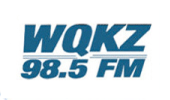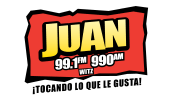Patoka Sportsman 7-31-21
Patoka Sportsman 7-31 & 8-1-21
The Indiana Department of Natural Resources recently completed its annual stocking of striped bass and hybrid striped bass across several lakes in Indiana, including Patoka Lake. The DNR stocked Patoka Lake with 11,353 striped bass and 44,000 hybrids. Indiana does not have the native sources to spawn striped and hybrid striped bass. DNR relies on commercial sources and state partners to supply fry for its hatchery system. In 2021, East Fork State Fish Hatchery staff developed a new relationship with the Jack D. Bayless Fish Hatchery in St. Stephen, South Carolina. The hatchery supplied Indiana with 500,000 striped bass fry. Good conditions in the hatchery ponds resulted in a surplus of fingerlings.
The fish stocked in 2021 should reach a fishable size of 14 inches in 2023 and begin to exceed 20 inches in 2024. Thanks to stockings like this, Indiana anglers can look forward to continued quality striped and hybrid striped bass fishing opportunities. Learn more about fishing for these species at: wildlife.IN.gov/fishing/striped-and-hybrid-striped-bass-fishing.
There will be a 3-D Broken Arrow Archery shoot Sunday August 8th at Beaver Lake CR 325 E Jasper IN. Sign-in will be from sunrise till noon. A practice range will be available, and concessions will available. The entry fee is $10 for all adults, $8 for children age 11-17, and free for the cub class (10 and younger) and active military members. There will also be a new class for the kids in the archery programs at school. The fee for that class is $5. They will shoot from 8-12 yard stake (white stake). They will have to bring their bows from school. For more information call Cliff Fleck at (812)630-0454 or Karla Brames at 8128273756.
The DNR’s Natural Resources Building is the place to be during the Indiana State Fair. The fair runs through Aug. 22, excluding Mondays and Tuesdays. Located in the northwest area of the fairgrounds, DNR’s building is not only one of the few with air conditioning, but also houses the best information, wild animals, and fun. Stop by the Fishin' Pond, where children ages 5-17 can fish for free. Check out live raptors daily at 10 a.m. at the amphitheater. While you are cooling off inside the DNR building, pick up the latest Recreation Guide, Fishing Guide, and Hunting & Trapping Guide, along with the guides for boating, off-road vehicles and much more.
Stay two nights and the second night is half off. This special is for stays Sunday through Thursday and ends Sept. 2. Visit Indianainns.com or call 1-877-Lodges1 to make your reservations.
Indiana DNR's hunting, trapping, and shooting education program offers instruction for those interested in learning more about these outdoor activities. The initiative promotes, supports and conducts events for novices of all ages, including families, adults, veterans, women, and individuals with disabilities. The program is designed to create lifelong hunting, trapping, and shooting enthusiasts. It also encourages healthy lifestyles through physical activity, social interaction, and the consumption of locally sourced, free-range proteins from hunting.
Hunting, trapping and shooting can’t be learned in a day, so the program offers a variety of events. These events are typically held at Fish & Wildlife Areas or State Forests and include:
- Multi-day workshops: These species-specific workshops focus on the science and skills of hunting. Each workshop is made up of two to four learning sessions, lasting two to four hours. Formats:
- Classroom sessions on laws and regulations, biology, hunting, scouting techniques, and recommended equipment.
- Field sessions of hands-on hunting in different habitats.
- Range sessions that include practice of shooting techniques and shot placement.
- Hunt sessions where participants pair with seasoned hunters in either a small group (two students to one mentor) or one-on-one.
- Seminars: Mini workshops (one to three hours) on a particular hunting topic such as cooking wild game, selecting a firearm, field dressing wild game, turkey calling, and waterfowl calling. Seminars are a refresher or elective portion for the multi-day workshops.
- Mentored hunts: Participants are paired with an experienced hunter for a safe and educational experience. Mentored hunts are operated either as small group hunts (two students to one mentor) or one-on-one hunts.
It only takes one adventure in the outdoors to inspire a future conservationist. Thanks to the Indiana Natural Resources Foundation’s Give Adventure grant, exciting recreational opportunities are providing Hoosiers access to new adventures, like the GoBikeIN program at Brown County State Park.
The cost of a mountain bike, safety gear, and the fear of getting hurt can hold people back from trying mountain biking. GoBikeIN removes those barriers. The program provides beginners with professional instruction and all the equipment needed to try the sport—for free. This program will resume once the State Fair is over. If you are interested in taking part, visit the Brown County State Park events page. Upcoming dates will be added soon.
DNR still needs your help to collect observations of turkey broods (hens and young) to calculate the annual wild turkey Production Index (number of young per adult hens).
DNR’s goal is to collect 3,000 observations, with at least 25 per county. Right now, biologists have received more than 2,000 observations. If you’ve seen a turkey brood or a hen alone since July 1, report your sighting online. All observations between July 1 – Aug. 31 are welcome.
The black bear seen in Vanderburgh, Daviess, and Pike counties has been getting into garbage. If trash or recycling containers are accessible, the bear could start to associate people’s homes with a place to find food. To protect the bear and your personal property, DNR encourages residents in southwest Indiana to secure trash, recycling, and other possible food sources.
- Store garbage cans and recycling containers inside a garage or shed.
- Put garbage cans and recycling containers on the curb the morning of pick-up rather than the previous night.
- Avoid putting meats, sweets, bones, or grease in compost piles.
- Remove or secure other potential food sources for bears, such as livestock feed or pet food.
Bears can become sick and even die from eating garbage. If the bear begins to actively seek food near people’s homes, DNR may need to use deterrents (airhorns, spotlights, etc.) to protect both the bear and people. These practices are stressful for the bear. Residents can help DNR avoid needing to use these tactics by removing potential food sources.
Online applications to be drawn for the 2021 state park deer hunts are now being accepted.
This year's dates are Nov. 15-16 and 29-30. These hunts are held to manage the impact white-tailed deer have on natural ecosystems. Applications must be submitted by Aug. 9.
Applicants must possess a hunting license that is valid for the hunt for which they are applying. For more details about the application process, visit on.IN.gov/reservedhunt.
The Patoka Lake Watershed Steering Committee encourages individuals, families, friends and service groups to help with the 14th annual Patoka Lake Clean Up on Saturday, Aug. 28.
Changes this year include morning signup at several designated boat ramps instead of a central location and free admission into the park for lunch and door prizes after the cleanup.
Participants of all ages and abilities will be assigned an area to pick up litter along the shore starting at 8 a.m. At 11 a.m., all volunteers head into the main entrance of the park for free entrance, a box lunch, door prizes and goody bags. Volunteers are asked to sign up ahead of time for lunch so check the Patoka Lake Watershed Steering Committee Facebook page or text or call 812-639-0123 and ask to be put on the Watershed email list.




